News
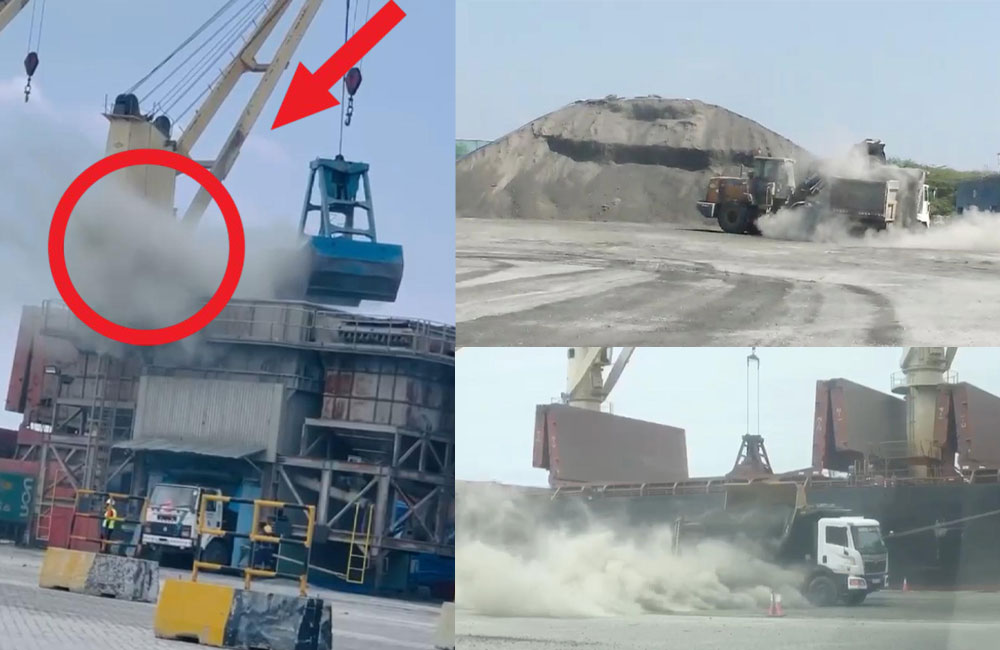
Environmental pollution, risk of cancer feared due to cement raw material transport
Environmental pollution and health risks of serious nature are feared during the loading and unloading process of raw materials for cement production.
Clinkers, gypsum and slag emit dust particles harmful to the environment and causing cancer at Hambantota port and at the factories, area residents say.
Some of the companies use covered conveyor belts to transport the material, while others do their unloading in open ground.
Transport of the material from the port to a factory in Galle is being done in open trucks.
Experts advise the proper use of conveyer belts to avoid this situation.


Justice undermined by politics?
- Can the Public Prosecutor ensure the Independence of the Public Prosecution? Fragmented prosecutorial structures and political interference threaten the integrity and effectiveness of Sri Lanka’s justice system
- We need simply one thing to guarantee the independence of the public prosecution in this country. That is, politicians…please refrain from interfering or influencing the Attorney-General
- We need simply one thing to guarantee the independence of the public prosecution in this country. That is, politicians; however, please refrain from interfering or influencing the Attorney-General, his department
- Introducing another prosecutorial body requires only the creation of a new bureaucratic structure, budgetary allocations, rules of procedure and complex coordination with the police and judiciary, which will paralyze ongoing prosecutions
- The collapse of major cases such as the Gloria Macapagal-Arroyo ‘ZTE’ telecommunications scandal illustrated how two competing prosecutorial bodies fragmented evidence, contradicted each other’s findings, and ultimately failed to secure convictions
Sri Lanka faces a renewed debate over prosecutorial independence as proposals to create a separate Public Prosecutor’s Office surface. Historical and international examples show dual prosecutorial systems often lead to fragmented evidence, political manipulation, and failed convictions. Experts warn the Attorney-General’s Department’s unity is crucial to safeguard impartial justice.
When the Maritime Provinces of the Island of Ceylon was under British occupation, Colonial Rulers adopted the Royal Charter of 1801, under which the office of the Governor was first established and Sir Frederick North was appointed as the first Governor.
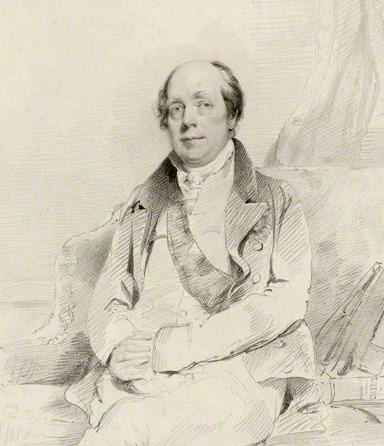 Sir Frederick North
Sir Frederick North
By the same Charter, the Supreme Court was first established in then Ceylon in 1801. The Charter provided for the appointment of the Advocate Fiscal to prosecute against criminals charged with grave crimes. The same Charter facilitated for the admission of Advocates and Proctors of the Supreme Court. Advocate Fiscal was the Chief Prosecuting Officer on behalf of the Crown.
In 1833, after the Kandyan Provinces were also annexed to the Maritime Provinces, the jurisdiction of the Supreme Court was extended to the whole Island and the Advocate Fiscal continued as the Principal Law officer of the Government.
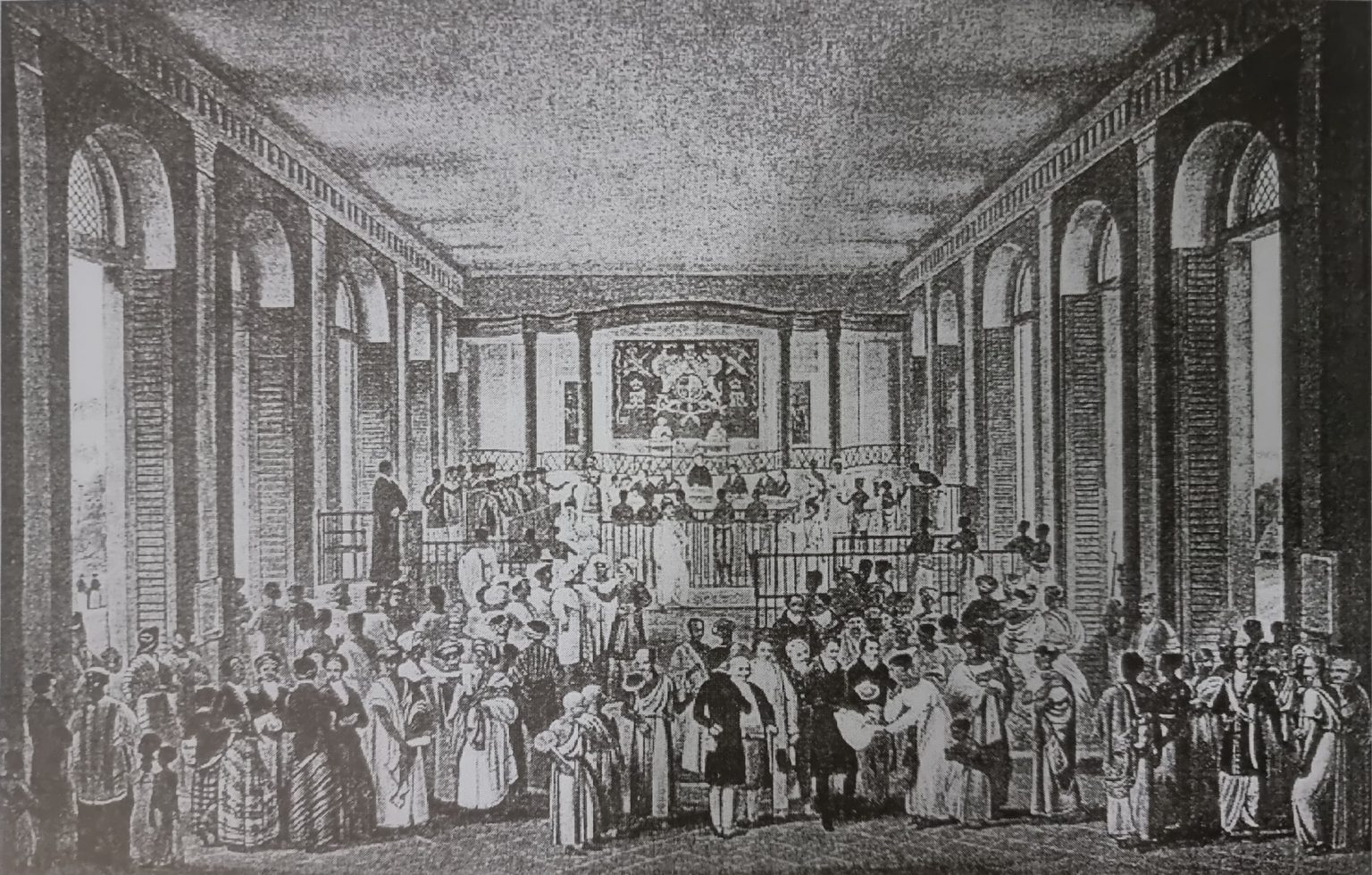 The Supreme Court of Sri Lanka in 1816
The Supreme Court of Sri Lanka in 1816
Later on, he was known as the ‘King’s Advocate’ (or ‘Queen’s Advocate’ as the case may be). Later they introduced two offices as the Queen’s Advocate and the Deputy Queen’s Advocate. They have been redesignated as ‘the Attorney General’ and ‘the Solicitor General’, in 1884. Since then, the Attorney General was the Chief Law Officer as well as the Chief Prosecutor of the Government. The evolution of this office has been discussed by Dr. D. F. H. Gunawardhana, J. in the case of H.M.N. Devapriya Vs. Chief Inspecter of Police Head Quarters (CA (Writ) No. 589/2024 C.A. Minute dated 17.07.2025)
The Office of the Attorney General continued after the adoption of the Ceylon Independence Act. Article 108 of the First Republican Constitution in 1972 also recognized the said office.
During the reign of Mrs. Sirimavo Bandaranaike, (1970 -1977) the National State Assembly enacted the Administrative Justice Law No. 44 of 1973 by which the Office of Public Prosecutor was established for the purpose of prosecution in criminal cases.
Thereafter, National State Assembly enacted the Administrative Justice Law No.44 of 1973 and section 80-83 thereof, the Director of Public Prosecution was vested with the powers and duties of public prosecution. It was functioned until 1978.
After the enactment of the Second Republican Constitution and the re-introduction of the Criminal Procedure Code, sole power of prosecution was exercised by the Attorney-General and his Department.
During the period where Prime Minister Mrs. Sirimavo Bandaranaike ruled the country, the offices of the Public Prosecutor and the Bribery Commissioner came under severe criticism as they were not impartial and politically motivated.
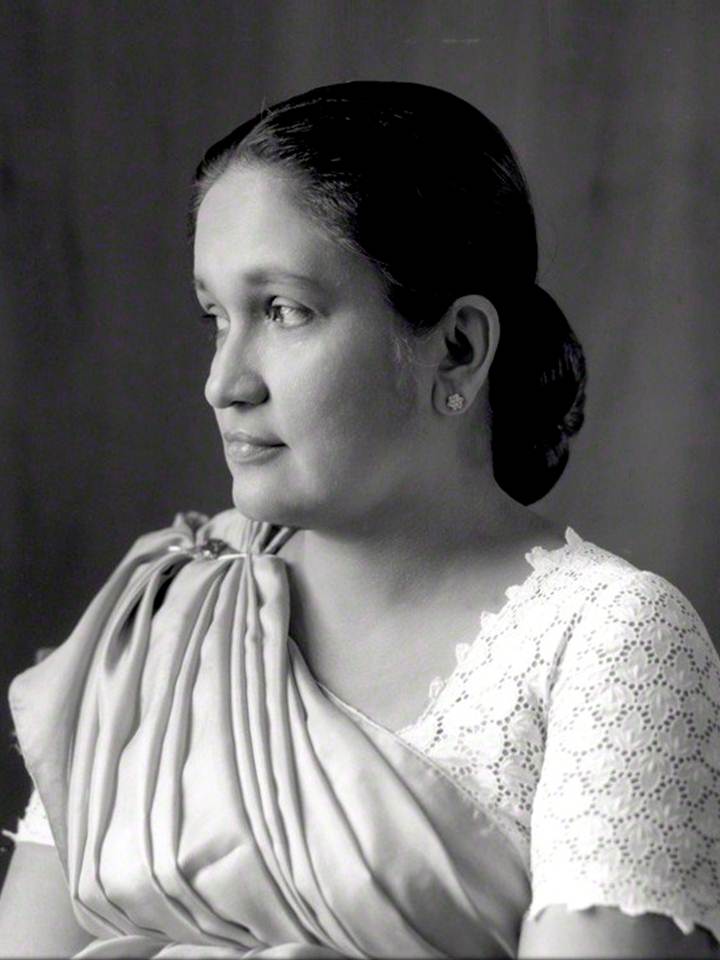 Prime Minister Mrs. Sirimavo Bandaranaike
Prime Minister Mrs. Sirimavo Bandaranaike
One cannot simply deny the fact that they were under tremendous political pressure and failed to demonstrate their impartiality to the political authority. People lost their confidence on both such offices as well as the government.
The situation became aggravated as the then government by 1972 Constitution abolished the Judicial Service Commission and the Public Service Commission by decorating with toothless State Services Advisory Board, State Services Disciplinary Board, Judicial Services Advisory Board and Judicial Services Disciplinary Board.
Mrs. Bandaranaike’s Government came under heavy criticism for politicization of the Judiciary and the Public Service sectors and her government became rapidly unpopular paving the way for J. R. Jayawardena to have landslide and overwhelming victory with 5/6 in the National State Assembly in 1977.
If the new generation needs to learn the political and social landscape prevailed during that era, the best option is watching the Sinhala movie Mid Ocean (id.rhla ueo) produced by veteran film artiste Gamini Fonseka.
The main reason for the abolition of the office of Public Prosecutor was its loyalty, partiality and loss of independence and integrity which is an essential feature of an officer involved in the administration of justice. There were certain matters lacking in the Attorney General’s Department too, but comparatively lesser.
That is why Prime Minister Ranil Wickremesinghe in 2002 enacted the Removal of Public Officer Act No. 5 of 2002 to ensure that the Attorney General cannot be removed without passing an impeachment in Parliament.
In other words, powers for the removal of the Attorney General which was vested in the Executive were removed and transferred to the Legislature.
There are significant provisions contained in the 21st Amendment to the Constitution to ensure the independence of the Attorney General.
Accordingly, the President is obliged to obtain the approval of the Constitutional Council prior to the appointment of the Attorney General.
It appears that the present government has taken keen interests to re-introduce the “Office of Public Prosecutor” arguing that it will function independently without having any political influence or interference. It must be noted that, assuming it is created in good faith; what is the difference in between the Attorney General and Public Prosecutor?
Qualifications for both the officers; shall be of the same as of the Attorney General
Appointment of both officers; shall be by the President with prior approval of the Constitutional Council
Disciplinary control of the both officers; As of the disciplinary code applicable to public servants
Removal; Removal of Attorney General is under Removal of Public Officer Act No. 5 of 2002. If Public Prosecutor is appointed invariably, he also has to be given the same assurance in his employment.
Assuming, the appointment of the Public Prosecutor, the only option is for the President is to appoint a qualified jurist with the approval of the Constitutional Council. In that context, the qualification, the procedure for appointment, disciplinary control and the procedure for removal of the Attorney General and the Public Prosecutor will be identical.
What is the guarantee that a Public Prosecutor will perform independently without any political influence or motivation?
No doubt that the independence of the administrative justice system in this country has to be independent and impartial. For that, no need of dismantling the well-established system that prevailed for 225 years except a period of 6 years (1973-1978).
We need simply one thing to guarantee the independence of the public prosecution in this country. That is, politicians; however, is your mighty, please refrain from interfering or influencing the Attorney-General, his department.
We also must look into the repercussions of the imprudent decisions to be made by the legislation. There was a tug of war that prevailed in between the Attorney General’s Department and the Public Prosecutor during the period where both were function. The latest experience is found in Kenya whereas Similar dual structures were established in 2013 (before the ODPP Act’s consolidation) led to months of jurisdictional disputes between the Attorney-General and Director of Public Prosecutions.
In Pakistan, after the separation of the Public Prosecutor’s Office from the Attorney-General (under the NAB Ordinance, 1999), the post became an instrument for political vendetta. Multiple NAB Chairmen and Prosecutors-General were removed or pressured to file politically motivated cases - eroding public trust in the justice system.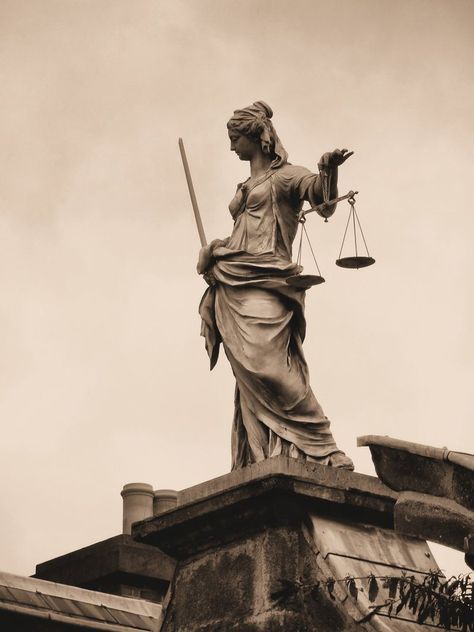
Introducing another prosecutorial body requires makes only a creation of a new bureaucratic structure, budgetary allocations, rules of procedure and complex coordination with the police and judiciary which also will paralyze ongoing prosecutions.
In Nigeria, the 1979 introduction of state-controlled Public Prosecutors under the Federal Attorney-General caused a decade of confusion, with state prosecutors refusing to pursue federal offences and vice versa. It took a constitutional amendment in 1999 to restore coherence.
Once there is a split, coordination between the two entities (AG and PP) will depend on political alignment rather than legal principle which will set a dangerous precedent.
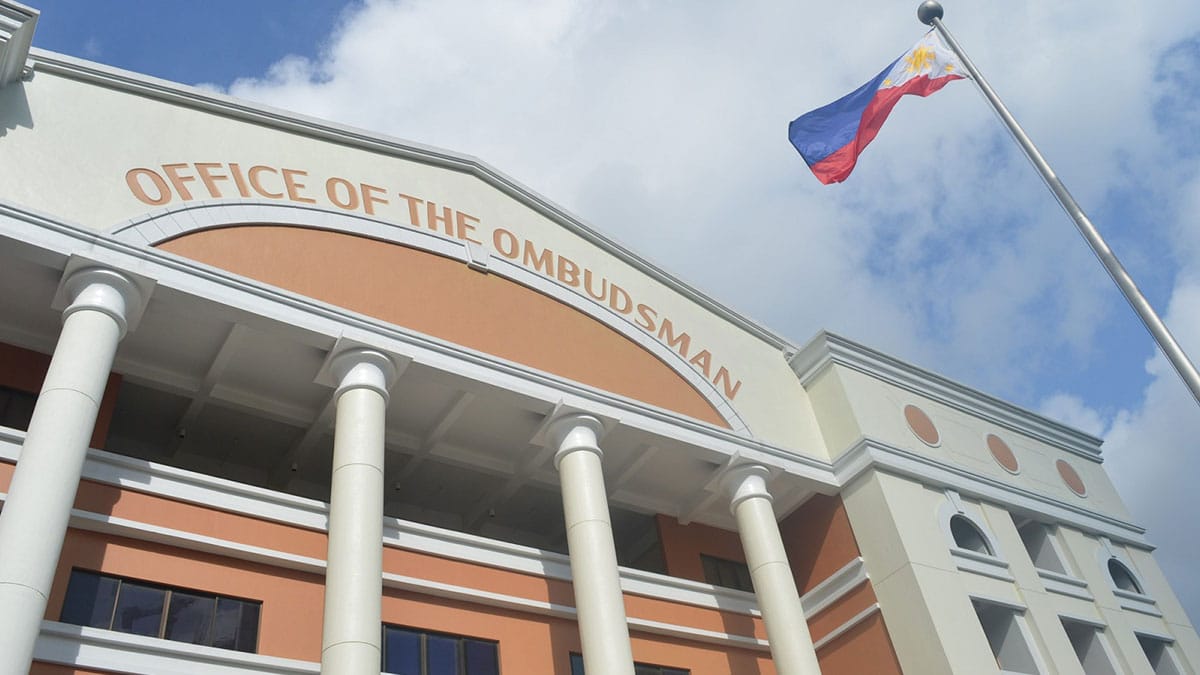 Office of the Ombudsman (OMB)
Office of the Ombudsman (OMB)
The experience of the Philippines serves as a cautionary example of how introducing dual prosecutorial structures in the name of independence can in fact dismantle the integrity of the justice system.
Following the creation of the Office of the Ombudsman (OMB) alongside the Department of Justice (DOJ), both institutions were vested with overlapping authority to investigate and prosecute corruption, abuse of power, and criminal offenses involving public officials. This overlap bred continual jurisdictional conflicts, procedural confusion, and duplication of cases, leading to delays and the frequent dismissal of prosecutions on technical grounds.
The collapse of major cases such as the Gloria Macapagal-Arroyo “ZTE” telecommunications scandal (2007–2016) illustrated how two competing prosecutorial bodies fragmented evidence, contradicted each other’s findings, and ultimately failed to secure convictions.  Department of Justice (DOJ)
Department of Justice (DOJ)
Similarly, during the “Pork Barrel” embezzlement investigations (2013–2018), political rivalry between the Ombudsman and the DOJ led to accusations of selective justice and the dismissal of several corruption cases. Under President Duterte’s “War on Drugs”, the conflict deepened, the DOJ pursued low-level offenders while the Ombudsman cleared senior officials, producing inconsistent and politically tainted outcomes that eroded public trust and drew international criticism, including from the International Criminal Court.
The duplication of roles, political appointments, and absence of clear accountability turned the supposed independence of the Ombudsman into a façade. Instead of strengthening checks and balances, the divided structure weakened prosecutorial coherence, fostered inefficiency, and entrenched politicization.
The Philippine model proves decisively that independence without unity and depoliticization is a dangerous illusion and a warning directly applicable to Sri Lanka, where creating a separate Public Prosecutor’s Office alongside the Attorney-General’s Department would almost certainly repeat these institutional failures.
(Source - DailyMirror)
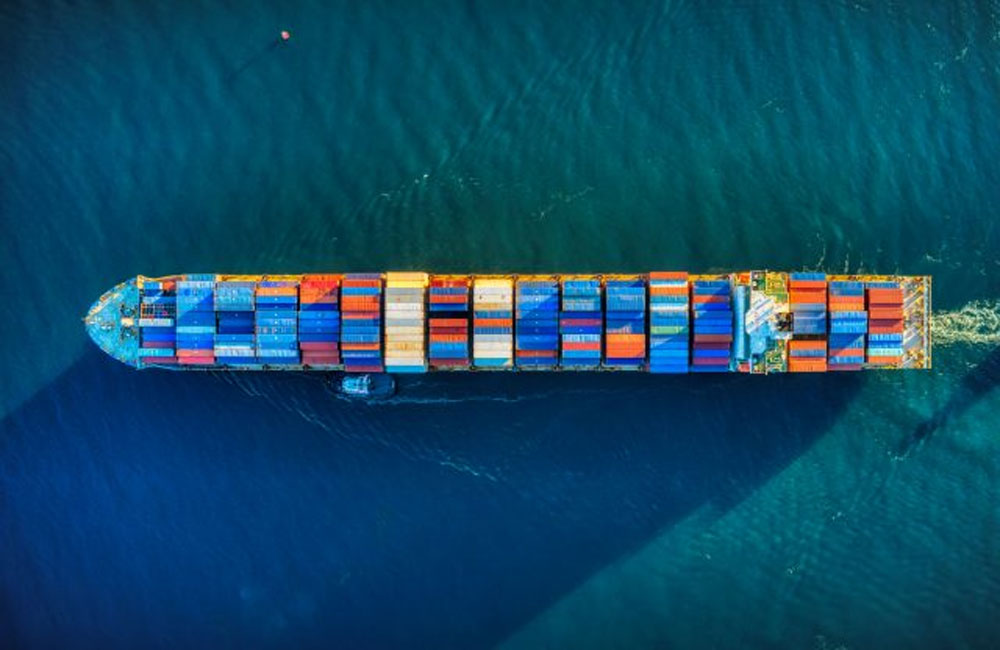
Sri Lanka’s Export Growth Masks Deep Structural Challenges Ahead”
Sri Lanka’s export sector has posted encouraging figures for the first nine months of 2025, but beneath the surface of growth lies a complex web of structural weaknesses and competitiveness challenges that continue to constrain long-term progress.
According to the latest Export Development Board (EDB) report, total export earnings—including both merchandise and services—stood at US$ 12,986.52 million, marking a 7% year-on-year increase from 2024. September alone generated US$ 1,469.75 million, up 12.33% compared to the same month last year. Merchandise exports, valued at US$ 10,240.52 million between January and September, rose by 7.59%, driven primarily by apparel, rubber-based products, and food and beverages.
However, industry experts caution that these headline figures paint only a partial picture. Exporters continue to grapple with currency volatility, high logistics costs, limited access to working capital, and declining competitiveness in global value chains. Despite a moderate recovery in global demand, many Sri Lankan exporters—especially in apparel and rubber sectors—are struggling with rising input costs, frequent power disruptions, and regulatory delays that erode margins.
While India, Germany, Italy, the Netherlands, the UAE, Canada, France, and China recorded notable year-on-year growth, the country’s largest export destination, the United States, showed a 2.84% dip in September 2025, with exports falling to US$ 238.72 million. Although cumulative exports to the U.S. increased by 3.04% over the nine months, the slowdown underscores the sector’s heavy reliance on a few key markets amid weakening consumer demand in Western economies.
India emerged as a stronger partner, with exports surging by 31.7% in September and 23.09% cumulatively, surpassing the United Kingdom. Yet, trade analysts note that much of this growth stems from re-export activities and short-term commodity shipments, rather than sustainable value-added diversification.
Adding to the strain are rising freight charges and port congestion in Colombo, which continue to delay shipments and inflate delivery costs. Exporters have repeatedly urged authorities to modernize port infrastructure and customs clearance procedures, but reforms remain sluggish. The apparel sector, contributing nearly 40% of total merchandise exports, is also facing shrinking global orders due to price competition from Bangladesh and Vietnam.
Economists warn that Sri Lanka’s export base remains narrow and vulnerable to global shocks, with over 60% concentrated in a few traditional categories. Without targeted investment in innovation, digital trade facilitation, renewable energy, and export financing, the country risks stagnating despite short-term gains.
As one senior trade analyst remarked, “The numbers look good on paper, but unless Sri Lanka addresses its deep-rooted inefficiencies, the export success story will remain fragile.”

10-hour water cut in several areas of Colombo today
The National Water Supply & Drainage Board (NWSDB) has issued a notice of a 10-hour water suspension in several parts of the Colombo District today (23).
According to the announcement, the water supply will be halted from 10:00 a.m. until 8:00 p.m. this evening.
The NWSDB explained that the disruption is due to a power failure at the Thulumuhuwa main pumping station, which is responsible for supplying water to the Ambatale Water Treatment Plant.
As a result, water services to the following areas will be temporarily suspended during the above time period:
- Colombo 01–15
- Battaramulla
- Pelawatte
- Hokandara
- Koswatta
- Thalawathugoda
- Kotte
- Rajagiriya
- Mirihana
- Madiwela
- Nugegoda
- Nawala
- Kolonnawa
- IDH
- Kotikawatta
- Angoda
- Wellampitiya
- Orugodawatta
- Maharagama
- Boralesgamuwa

Government amends law to lure FDI via tax concessions
The Sri Lankan Cabinet of Ministers yesterday approved sweeping amendments to the Strategic Development Projects Act (SDP Act) originally passed during the Mahinda Rajapaksa era, paving the way for targeted tax incentives to attract foreign direct investment (FDI) into large-scale projects. The move is explicitly designed to circumvent the limitations on tax incentives imposed under the International Monetary Fund (IMF) programme, sparking concerns about the hidden agenda behind the reform.
In a statement, Cabinet spokesman Nalinda Jayatissa said that the draft amendments have cleared the Attorney General’s review, will be gazetted and tabled in Parliament shortly. The government stressed the revision is focused on “capital-intensive projects that are critical for the country’s economic recovery” while insisting fiscal discipline under the IMF programme will be upheld.
At the heart of the change lies the government’s bid to revive delayed megaprojects such as the $3.7 billion Hambantota Port & oil-refinery scheme and the Port City Colombo development — both long stalled because tax concessions were not permissible under existing law. Through the amendments, strategic projects will again be eligible for exemptions or holidays on corporate tax, VAT, import tariffs and other levies under the SDP framework. Historically the SDP Act has been criticised for offering 12-year VAT import exemptions and other tax breaks.
But the IMF, under its 48-month Extended Fund Facility (EFF) approved in March 2023, has repeatedly stressed that Sri Lanka must avoid granting broad tax concessions, strengthen tax-exemption frameworks, and boost revenue mobilisation. In a March 2025 press briefing the IMF warned that “unsustainably low taxes and sizeable tax exemptions largely benefiting enterprises rather than people were an accident waiting to happen”.
The same guidance emphasises that tax-exemption regimes must be transparent, justified, and aligned with broader fiscal reform.
Analysts are already interpreting the amendment’s hidden purpose: to create a carve-out allowing flagship foreign-investment projects to operate outside the IMF-mandated discipline. The timing raises alarm, because Sri Lanka’s current IMF review cycle emphasises revenue recovery, trimming exemptions, and strengthening public-financial management. For example, the IMF’s July 2025 staff mission underscored that “the tax exemption framework should be well designed to reduce fiscal costs and corruption risks, while enabling growth.”
Critics argue that the amendment may undermine the broader reform agenda. The World Bank and Human Rights Watch have warned that long tax holidays weaken public finances, distort fiscal equity and push people into poverty. Advocata Institute Chairman and JB Securities CEO Murtaza Jafferjee recently wrote: “There is no defensible justification for granting tax concessions in the Port City. The location is already uniquely advantaged… Layering tax concessions on top is both unjust to other taxpayers and corrosive to the broader economy.”
As Sri Lanka seeks to balance the twin imperatives of reviving investment flows and satisfying IMF reform conditions, the amendment signals a critical test. Will the government’s drive for mega-FDI projects override its commitment to revenue discipline and transparency? Or can this tailored tax incentive regime be designed in a way that aligns with the IMF’s framework for a sustainable recovery? The questions will matter not just for these flagship projects, but for the country’s broader fiscal future.
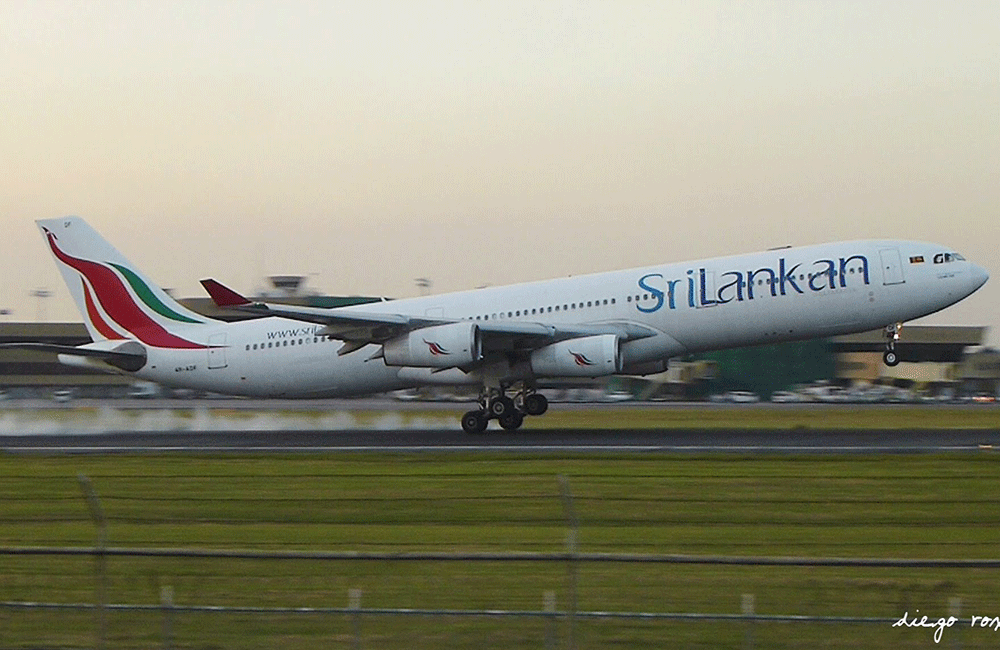
SriLankan Airlines Bleeds as State Control Blocks IMF-Backed Reform
Sri Lanka’s national carrier, SriLankan Airlines, has plunged back into heavy losses, reigniting debate over the government’s continued refusal to restructure the debt-laden airline despite International Monetary Fund (IMF) recommendations for reform and divestment.
The airline’s annual report for the year ending 31 March 2025 reveals a Rs. 2.73 billion net loss, a sharp reversal from the Rs. 7.9 billion profit recorded the previous year a 134% year-on-year decline. Total revenue fell by nearly 11% to Rs. 303 billion, weighed down by a 15% drop in passenger income, driven by reduced capacity, lower global yields, and a stronger rupee.
Acting CEO and Group CFO Yasantha Dissanayake acknowledged that unscheduled engine repairs and net finance charges of Rs. 31.6 billion worsened the bottom line. While the cargo division showed a modest 2% growth due to strategic pricing, and ground handling income rose 16%, these gains were insufficient to offset the airline’s heavy financial and operational burdens.
The balance sheet paints an even bleaker picture: shareholders’ funds remain negative at Rs. 379.5 billion, while total assets have fallen to Rs. 189.2 billion. Compounding the crisis, $211.57 million in international bonds guaranteed by the government remain in default, with unpaid interest of $36.57 million.
In June 2025, the bond trustee’s delegate issued a statutory demand requiring full repayment by 2 July 2025, warning of a possible winding-up application if SriLankan failed to comply. The airline sought and secured an injunction from the Commercial High Court, supported by the Attorney General’s Department, which argued that “no cause of action” had arisen to justify liquidation.
Despite the looming financial pressure, the government has opted to maintain full state control over the carrier, deferring a long-delayed IMF-recommended restructuring plan that includes partial privatization and operational reform. In 2025, the Cabinet appointed Lazard Frères SAS as the airline’s international financial adviser and Norton Rose Fulbright LLP as legal counsel to negotiate with bondholders. However, officials indicate the government intends to retain ownership, citing “national interest,” even as debt negotiations stall.
Analysts warn that continued state control could deepen fiscal risks and derail the broader IMF-backed economic recovery. S&P Global Ratings recently noted that while Sri Lanka has made progress in restructuring sovereign debt, unresolved liabilities of state-owned enterprises (SOEs) particularly SriLankan Airlines pose ongoing challenges to macroeconomic stability.
IMF officials have repeatedly urged the government to reduce losses from state enterprises through restructuring or divestment. However, political reluctance and resistance from trade unions have left the airline trapped in a cycle of losses, debt rollovers, and bailout dependence.
With $175 million in outstanding principal still under negotiation and global aviation competition intensifying, SriLankan Airlines’ future hangs in the balance caught between IMF reform imperatives and a government intent on preserving control, even at a mounting public cost.
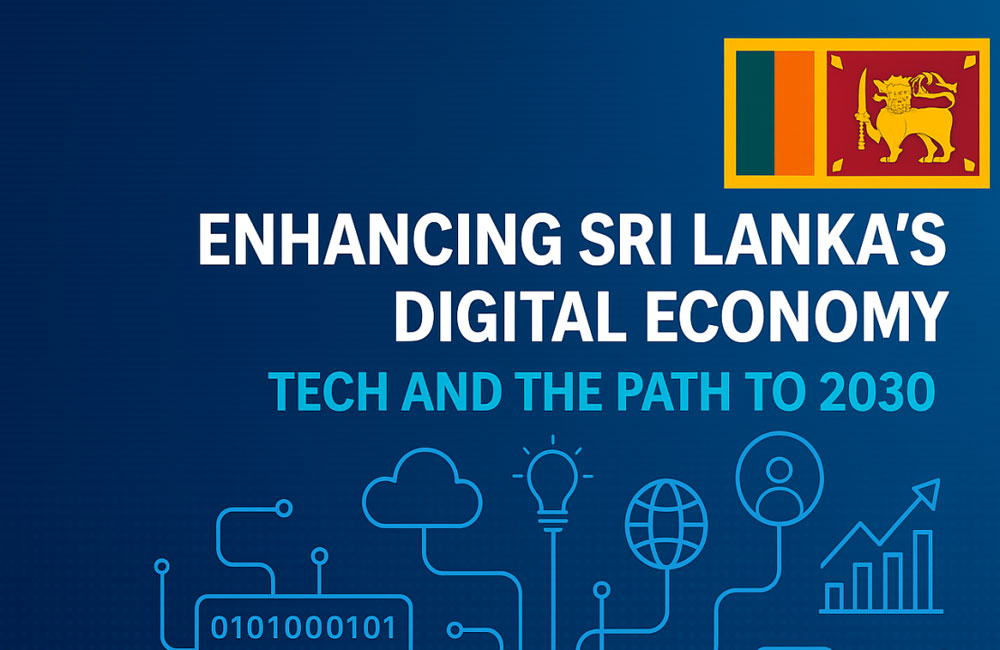
Sri Lanka’s $15 Billion Digital Vision Targets Super ROI Revolution
Sri Lanka is embarking on an ambitious digital transformation drive aimed at generating what officials describe as a “super return on investment (ROI)” through the creation of a US $ 15 billion digital economy. The initiative, unveiled by Dr. Hans Wijesuriya, Chief Advisor to the President on Digital Economy and Chairman of the Information and Communication Technology Agency (ICTA), seeks to position digitalisation as the nation’s primary growth engine within an increasingly tight fiscal space.
Speaking at the launch of the Institute of Policy Studies’ State of the Economy 2025 report, Dr. Wijesuriya said the digital economy would be built around efficiency, competitiveness, and innovation, creating powerful multiplier effects across all sectors. “Digital transformation is the crucial ingredient for economic growth when fiscal room is constrained,” he noted.
At the core of this vision is the development of digital public infrastructure (DPI) a shared set of systems including a national digital ID, data-exchange networks, digital signatures, and federated payment frameworks. The plan marks a shift from fragmented “vertical” ICT solutions toward interconnected “horizontal” platforms designed to serve all public institutions and private users alike.
Sri Lanka, he observed, currently operates with “islands of excellence standalone digital solutions that do not communicate effectively causing friction for citizens and businesses. The new strategy aims to open these systems through application programming interfaces (APIs), enabling entrepreneurs and SMEs to build innovative services on top of government data and platforms, multiplying economic value.
Crucially, Dr. Wijesuriya emphasised that the cost of building this infrastructure will be manageable due to open-source software, cloud technologies, and shared investment models. The government will fund the foundational DPI layer directly, while encouraging private investment in broadband, telecom networks, and cloud infrastructure.
The timeline is intentionally aggressive: the full foundational layer is targeted for completion within two to four years far shorter than the typical decade-long horizon. The broader goal is universal broadband coverage by 2030. Early wins will be sought in tourism, logistics, and trade—sectors that can deliver quick productivity boosts through digital solutions.
However, technology alone, he warned, will not deliver success. The strategy stresses “analog complements”reforms in laws, policies, and processes. Key areas include procurement reforms to end payment delays that “kill” SMEs, re-engineering business models alongside digitisation, and closing the digital divide through purpose-driven, citizen-centric technologies.
Ensuring a “trustworthy digital destination” is central to this transformation. Robust legal frameworks for data privacy, cybersecurity, and intellectual-property protection will be strengthened under the new Data Protection Authority and a forthcoming Cybersecurity Act. Together, these pillars aim to unlock a dynamic, resilient, and inclusive digital economy capable of driving Sri Lanka’s next phase of growth.

Sri Lanka Signs UN Cybercrime Pact as Online Offences Surge
Sri Lanka’s decision to sign the United Nations Convention against Cybercrime (UNCC) marks a significant policy shift as the nation grapples with a dramatic escalation in online offences. The move, approved by the Cabinet of Ministers, is being framed as part of a wider national effort to strengthen cooperation, enhance digital security, recover assets, and protect victims. However, experts warn that simply signing the convention will not be enough unless it is backed by systemic reforms and a long-term cybersecurity strategy.
According to official data, Sri Lanka recorded more than 5,400 cybercrime complaints during the first nine months of 2025, compared to around 2,887 complaints during the same period in 2024. This represents nearly a 90 percent surge in reported incidents, highlighting the growing sophistication and scale of digital crime.
Most of the cases involved social media-related offences such as phishing, financial fraud, impersonation, online harassment, and deepfake exploitation. Cybersecurity authorities say that criminals are increasingly using artificial intelligence to create fake profiles, manipulate videos, and deceive users, while law enforcement continues to struggle with detection and prosecution.
The government hopes that joining the UN Convention will improve access to international cooperation mechanisms, enabling faster cross-border investigations, data exchange, and the recovery of stolen digital assets. It will also provide frameworks for witness protection, victim assistance, and capacity building through global partnerships.
The joint Cabinet proposal, presented by the President in his capacity as Minister of Digital Economy, together with the Ministers of Justice and Foreign Affairs, underscores the urgent need to align Sri Lanka’s cybersecurity systems with global standards.
Despite existing laws such as the Cybercrimes Act of 2007 and the Online Safety Act No. 9 of 2024, enforcement remains weak. Many cases go unreported or unresolved, and only a handful result in convictions.
The lack of skilled investigators, outdated equipment, and limited coordination between agencies have all contributed to poor outcomes. Sri Lanka’s Computer Emergency Readiness Team (SLCERT), which leads the national cyber response, has called for more resources and training to handle the increasing volume and complexity of digital crimes.
The National Cyber Protection Strategy for 2025–2029, recently approved by the government, acknowledges these gaps. It outlines the need for improved law enforcement capacity, greater public awareness, and stronger collaboration between state institutions and private technology firms.
Experts also emphasize the importance of mandatory data breach reporting, tighter regulations for corporate cybersecurity governance, and the establishment of a dedicated digital forensics division capable of real-time analysis.
With more than 12.4 million internet users and 8.2 million active social media accounts, Sri Lanka’s online ecosystem continues to expand rapidly. Yet this growth has also widened the window of vulnerability. Analysts argue that unless the government moves beyond symbolic gestures and commits to tangible reforms, the wave of cybercrimes could soon outpace the country’s defensive capabilities.
The decision to sign the UN Cybercrime Convention is therefore seen as a vital step—but only the beginning. Without effective domestic implementation, investment in technology and training, and sustained public awareness, Sri Lanka risks remaining a soft target for cybercriminals even under the banner of global cooperation.

9 Ways to Boost Your Productivity at Work
Let’s face it — in today’s notification-obsessed, meeting-heavy work culture, staying focused feels harder than ever. Whether you’re grinding through tasks or leading a team, the real superpower isn’t working harder — it’s working smarter.
Inspired by the ideas behind “Indistractable,” here are nine practical habits to help you protect your focus and boost productivity — without burning out.
-
Treat Your Calendar Like a Contract (Timeboxing) Don’t just make a to-do list — assign every task an actual place on your calendar. When your day is timeboxed, there's no room for guesswork or accidental procrastination. Your brain knows exactly what to focus on and when.

-
Sync, Don’t Sink — Align Schedules with Your Team Unexpected pings and surprise meetings kill flow. Align your deep-work hours with your teammates beforehand so everyone guards the same focus zones. Less chaos, more productivity.

-
Take Control of External Interruptions Emails, Slack, buzzing phones — death by a thousand distractions. Mute non-critical notifications, set boundaries (“reply windows”), and train your environment to respect your focus.

-
Beat Procrastination with the 10-Minute Trick Tell your lazy brain: “I’ll just do this for 10 minutes.” Nine times out of ten, momentum takes over — and you’ll keep going. Starting is the hardest part. Hack it.

-
Use Precommitment Like a Trap for Future You If willpower is unreliable, outsmart it in advance. Block distracting websites. Commit to a colleague. Schedule publicly. Make quitting harder than finishing.
-
Engineer a Focus-Friendly Workspace Your space either fuels your attention or fragments it. Declutter. Use noise-canceling headphones. Keep it calm, inspiring, and intentional — not visually chaotic.

-
Build a Team Culture Where It’s Safe to Speak Up Teams only thrive when people feel safe to share ideas and block toxic patterns. Psychological safety = higher engagement + real productivity, not just busy-ness.

-
Normalize Predictable Breaks and No-Meeting Zones Productivity isn’t about working nonstop — it’s about recovering smartly. Create sacred “focus hours” and predictable rest windows to avoid burnout on autopilot.

-
Reflect Weekly — and Adjust on Purpose Don’t wait for burnout to diagnose the problem. Do a quick weekly audit — what boosted your productivity? What derailed it? Tweak, evolve, repeat.

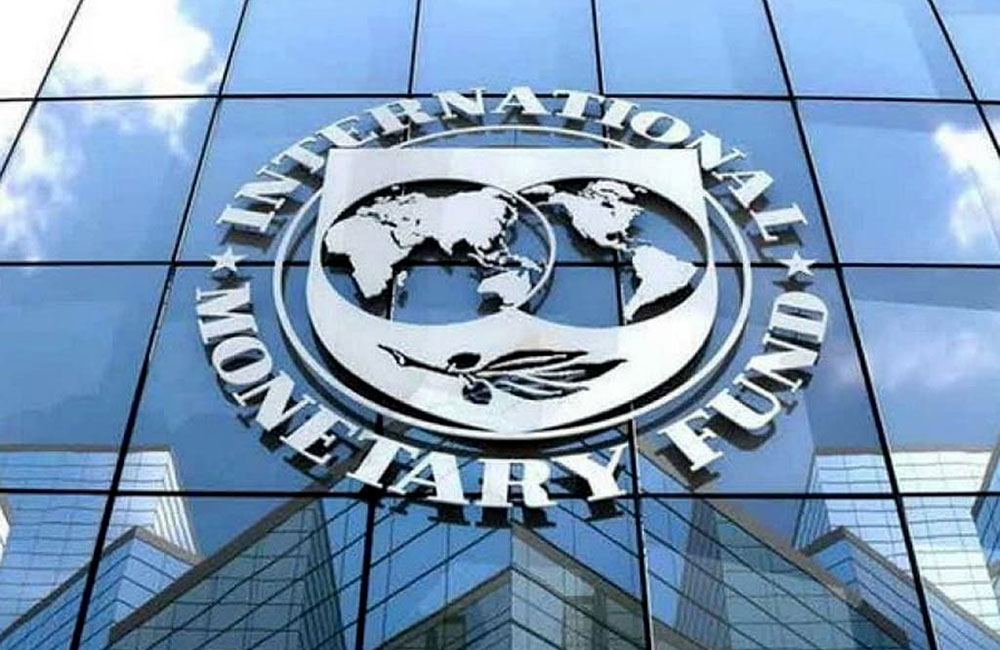
IMF Calls for Urgent Procurement Law to Curb Corruption in Sri Lanka
The International Monetary Fund (IMF) has urged Sri Lanka to expedite the introduction of a comprehensive Public Procurement Law, warning that the country’s current tendering system remains highly vulnerable to corruption, wastage, and irregular decision-making.
The recommendation forms part of the IMF’s wider governance and transparency reform agenda aimed at strengthening public financial management and restoring investor and public confidence.
According to a recent IMF governance diagnostic report, Sri Lanka’s procurement process suffers from deep structural flaws, including the absence of an independent central regulatory authority, outdated procurement policies, and inconsistent oversight mechanisms. The IMF cautioned that without swift legal reform, Sri Lanka’s efforts to regain public trust and attract foreign investment will continue to falter.
At present, public procurement in Sri Lanka is highly fragmented, functioning across multiple layers of government—ministries, departments, and the Cabinet. While secretaries of line ministries are responsible for execution, high-value contracts are handled by Cabinet Appointed Procurement Committees (CAPCs) before final Cabinet approval. However, the IMF points out that this process allows excessive discretionary power at the Cabinet level, often resulting in politically influenced or opaque contract awards.
The issue was underscored by a 2006 Court of Appeal ruling, which stated that Cabinet decisions were not legally bound by procurement guidelines or recommendations from the Appeals Board—effectively legitimizing Cabinet’s freedom to override procedural safeguards.
To counter these weaknesses, the IMF has recommended the immediate activation of the National Procurement Commission (NPC) with a full governance mandate to regulate procurement and oversee unsolicited project proposals. It has also proposed an 18-month action plan to accelerate reform implementation.
A central component of the proposed reform is the Procurement Management Information System (PROMISe), which remains in its pilot stage. PROMISe is designed to digitize and automate the procurement process, enhancing monitoring and transparency from bid submission to contract award. However, the IMF stresses that the system’s success will depend on staff training, technical capacity, and integration with existing audit and accountability frameworks.
To further enhance transparency, the IMF recommends that the government publish details of all contracts exceeding Rs. 1 billion, including bidding outcomes and the level of competition, every six months on a dedicated public website especially for agencies with weak compliance records.
Experts note that the transition to a digital, rules-based procurement regime could be transformative for Sri Lanka, provided it is paired with stronger audit mechanisms and accountability measures.
As the nation continues its slow recovery from the worst fiscal crisis in decades, the IMF emphasizes that cleaning up procurement is not merely about saving money, but about rebuilding public trust and ensuring that taxpayers’ funds are used efficiently, transparently, and fairly

Hansamali Says Padme Wanted to Be Fair, Credits His Glow-Up to Her Product
Model Piumi Hansamali has clarified her position following an inquiry by the CID regarding alleged ties to underworld figure Mandinu Padmasiri Perera, known as ‘Kehelbaddara Padme’.
Issuing a statement today (22) via Facebook, Hansamali said her only interaction with Padme was recommending her own beauty products to him. She noted that she had first met him in April 2022 at a New Year celebration in Dubai, which was also attended by several other actors and actresses, along with his family.
Hansamali added that the CID had questioned her about any financial transactions linked to Padme, which she denied, emphasizing that there had been no such dealings.
"Hi good afternoon wishing my lovely friends a beautiful day
So about 4 years ago — that is, in April 2022 — I went to a New Year celebration in Dubai along with some other actors and actresses. That’s actually where I first saw this person called Padme. He was there with his wife and children as well.
He even took photos with me and at that moment he told me that he also wants to become fair and beautiful. So he wanted Piumi Skin, and I told him to go ahead and apply it I’m pretty sure he actually used it — because now he’s seriously so fair and good-looking
Then CID officers asked me whether I had done any financial dealings with him but never ever — I have not taken even a single cent of drug money, illegal money, or black money. I don’t need that. I am a self-made woman. I built myself up alone.
I have my own Piumi Skin Private Limited company. So I don’t need money from anyone in the underworld If I take that kind of money, they’ll just shoot me — I’m scared of that kind of thing, promise
I always say — anyone can become fair and beautiful using Piumi Skin."
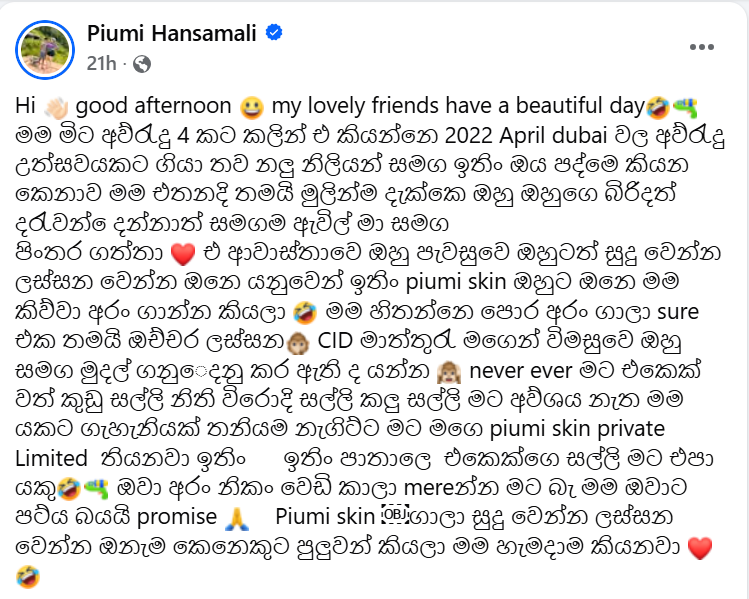

Five Trains Cancelled; Colombo–Badulla Night Mail Affected
The Department of Railways has announced the cancellation of five additional train journeys today (22), including the two night mail trains scheduled to operate between Colombo Fort and Badulla in both directions.
Authorities confirmed that service restrictions on the main line will remain in effect.
Earlier this morning, ten train services between Kandy and Colombo Fort were also cancelled, as operations along this key route remain heavily affected.
Train movement between Kandy and Colombo has been disrupted for several days due to a recent derailment and multiple earth slips reported at various points on the main line.
As a result, the Department further noted that trains on the Colombo Fort–Badulla route will currently operate only between Peradeniya and Badulla, until further notice.
Page 93 of 681